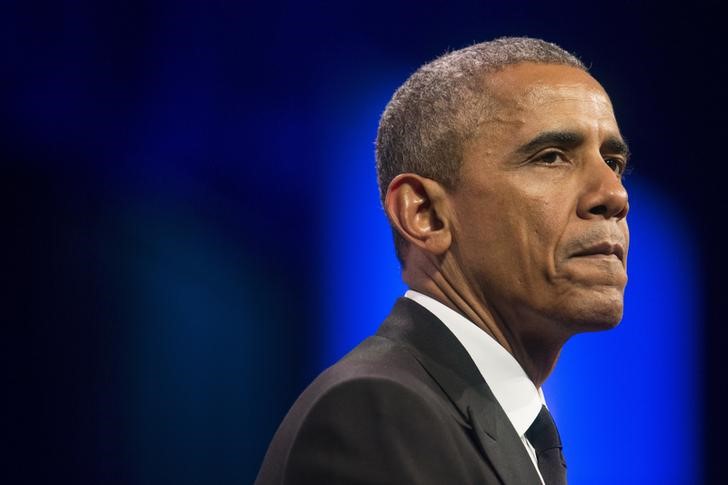By Richard Cowan and Fiona Ortiz
WASHINGTON/CHICAGO (Reuters) - Democrats in the U.S. Congress, outraged over the Obama administration's pursuit of Central American migrant families for deportation, on Friday called for a halt and new protections for undocumented people from three crime-infested countries.
Members of the Congressional Hispanic Caucus said they want "temporary protective status" for undocumented migrants from El Salvador, Honduras and Guatemala. They argue that high murder rates and gang violence there pushed thousands, including families and children traveling alone, to seek U.S. refuge.
The recent crackdown, by the U.S. Department of Homeland Security, was an expansion from mostly targeting individuals to pursuing families with undocumented members.
Some immigration groups viewed the policy as sending a message to Central Americans, amid a spike in their arrivals at the southwestern U.S. border, not to make the journey.
House Democrats denounced Democratic President Barack Obama's policy at a press conference, urging him to protect, not deport, those immigrants.
The White House did not signal a willingness to back off.
"We are of course aware of these concerns, but the enforcement strategy and priorities that the administration has articulated are not going to change," White House spokesman Joshua Earnest told reporters.
Hispanic Caucus head Linda Sanchez described women being raped and murdered, buses being set ablaze and gangs controlling the streets of El Salvador, Guatemala and Honduras.
"Deporting these refugees essentially means that we're sending them back to their home countries to face possible death," she said.
Several House Democratic lawmakers on Thursday met with administration officials to register their anger over the policy.
Sanchez told reporters they left the meeting not knowing whether DHS agents will continue targeting Central American families for deportation. They have asked to meet in person with Obama.
DHS has confirmed authorities took 121 people into custody over the weekend.
More than 10,000 people could be subject to deportation under the DHS initiative, according to new figures from the Executive Office for Immigration Review. Nearly all are unaccompanied minors.
Seventy-five percent of deportation orders were issued in absentia because the immigrant did not attend a hearing. Activists say that indicates many have not gotten adequate legal aid, as immigrants attending hearings and fighting their cases in court have mostly avoided deportation.
"Unfortunately there are removal orders for people who had bad legal representation or poor legal representation," said Claudia Valenzuela, director of Chicago's Detention Project at the National Immigrant Justice Center.
